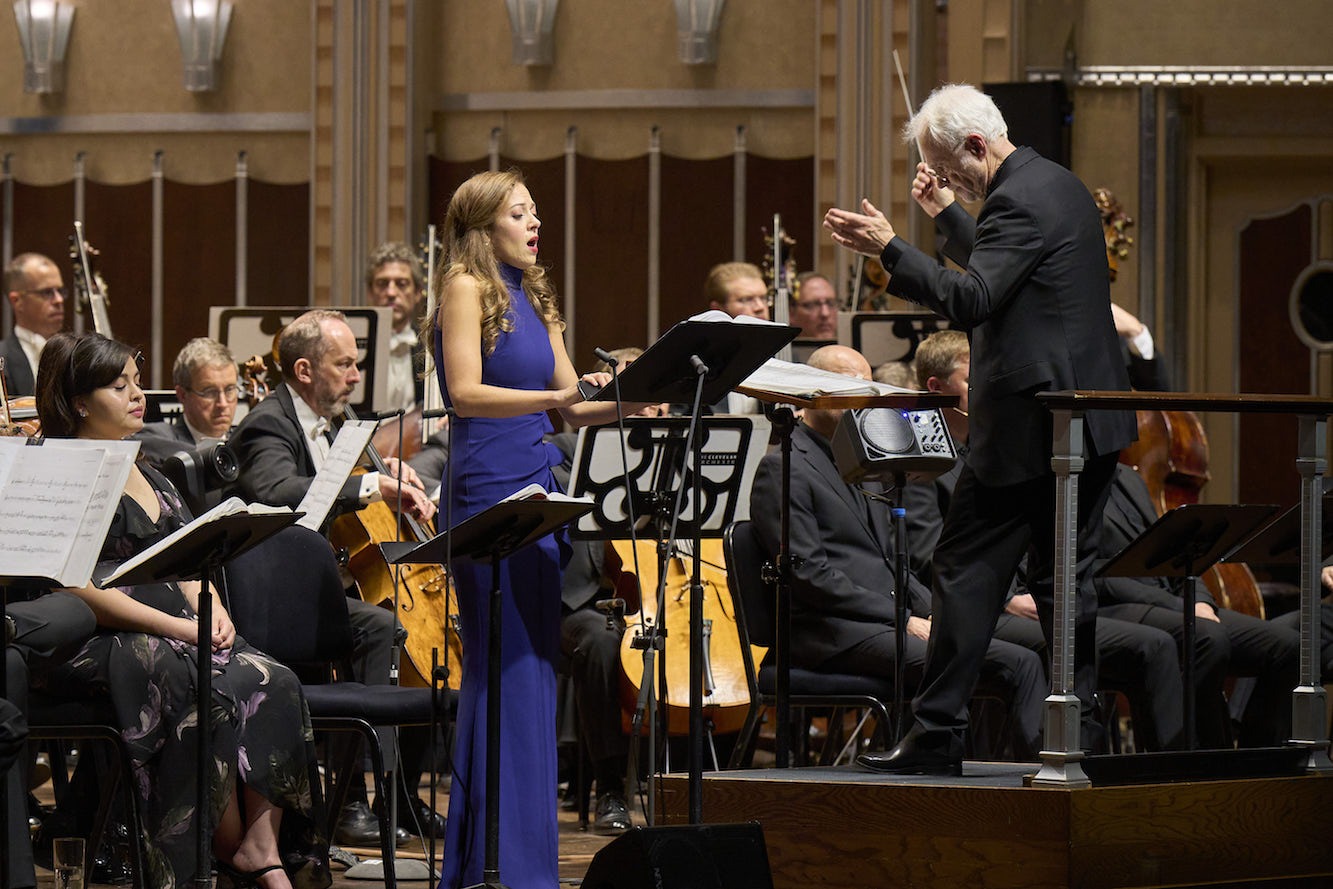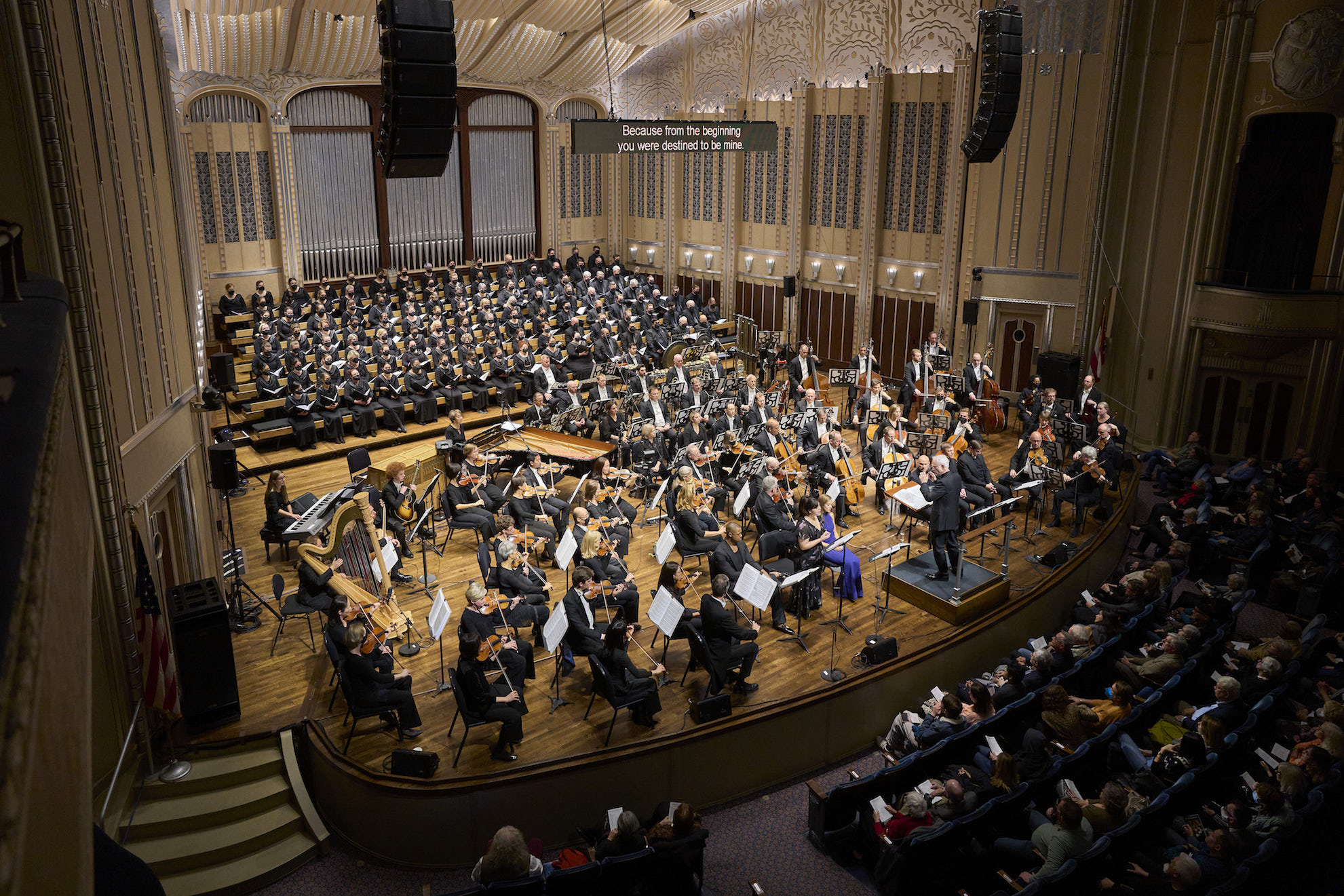by Stephanie Manning
In the 22 years since it was written, John Adams’ El Niño has been programmed in all kinds of creative ways. The premiere of the oratorio was accompanied by a silent film, and the 2014 Spoleto Festival brought in a crew of puppeteers. But on November 18, The Cleveland Orchestra decided to keep it simple. The straightforward concert-style presentation, conducted by Adams, let the music speak for itself — and it had plenty to say.
El Niño, a modern retelling of the birth of Jesus, isn’t an easy work to explain. Commissioned at the turn of the millennium, the oratorio tells the Biblical story from new perspectives, primarily by centering women’s voices in the narrative. It combines traditional texts with the Wakefield Mystery Plays, Haggai, and ancient and contemporary Latin American poetry. Essentially, Adams set out to write his own Messiah — but while Handel’s work is unquestionably a celebration, Adams takes a more nuanced approach, tackling big questions about the nature of miracles, pregnancy, and motherhood.
The music isn’t easy to play, either. Over the course of two hours, all of the musicians brought fantastic focus to the unrelenting tricky rhythms and countless layers of parts, all of which require a high level of individual responsibility. Even in the moments of calm, the accompaniment remains perpetually unsettled. Adams — who made a sprightly presence on the podium — combines minimalist, repeating motives in gradual layers, which eventually become so dense they overwhelm the senses. Lisa Wong deserves special mention for her thorough preparation of the Cleveland Orchestra Chorus, as does Jennifer Rozsa for the Children’s Chorus, which made a brief but memorable appearance in the last few minutes
At the center of the performance were the six soloists — three of which were countertenors, easily one of the defining features of the work. The trio almost always sing from a singular perspective, their close harmonies meshing to create an supremely eerie effect. Daniel Bubeck, Brian Cummings, and Nathan Medley are all quite familiar with the work (the former two both sang in the premiere), and proved to be a fantastic combination.
Though the Biblical text lays the work’s foundation, the most poignant sections occur when the narrative zooms out, drawing parallels to modern-day society and shared experiences. “Se Habla de Gabriel,” a text by Mexican poet Rosiaro Castellanos, offers a visceral account of the anxieties and fears of pregnant women, rendered in a heart-wrenching duet between soprano Lauren Snouffer and mezzo-soprano Josefina Maldonado. Snouffer displayed both a clear, sweet tone and an impressive sense of pitch, and the young Maldonado — making her Cleveland Orchestra debut — more than held her own amid such a strong cast. Her round and resonant voice projected well in all registers, consistently controlled in sections like Castellanos’ “La anunciación.”
Bass-baritone Davóne Tines brought the requisite ferocity to his performance, first as Joseph (who thinks the virgin Mary has deceived him after finding her pregnant) and later as Herod (who orders the murder of Bethlehem’s infants). The atrocities committed by Herod are thrown into stark relief to contemporary conflict with Castellanos’ “Memorial de Tlatelolco,” a poem written as a reaction to the 1968 massacre of student protesters in Mexico City. As the featured soloist, Snouffer delivered her most powerful performance of the night.
Decades on from both the events at Tlatelolco and the work’s premiere, the commentary about violent, political acts has never been more relevant. Before last week, El Niño had never been performed at Severance, and although it’s not an easy work to put on, it’s a worthwhile one.
Photos courtesy of Roger Mastroianni
Published on ClevelandClassical.com November 25, 2022.
Click here for a printable copy of this article




